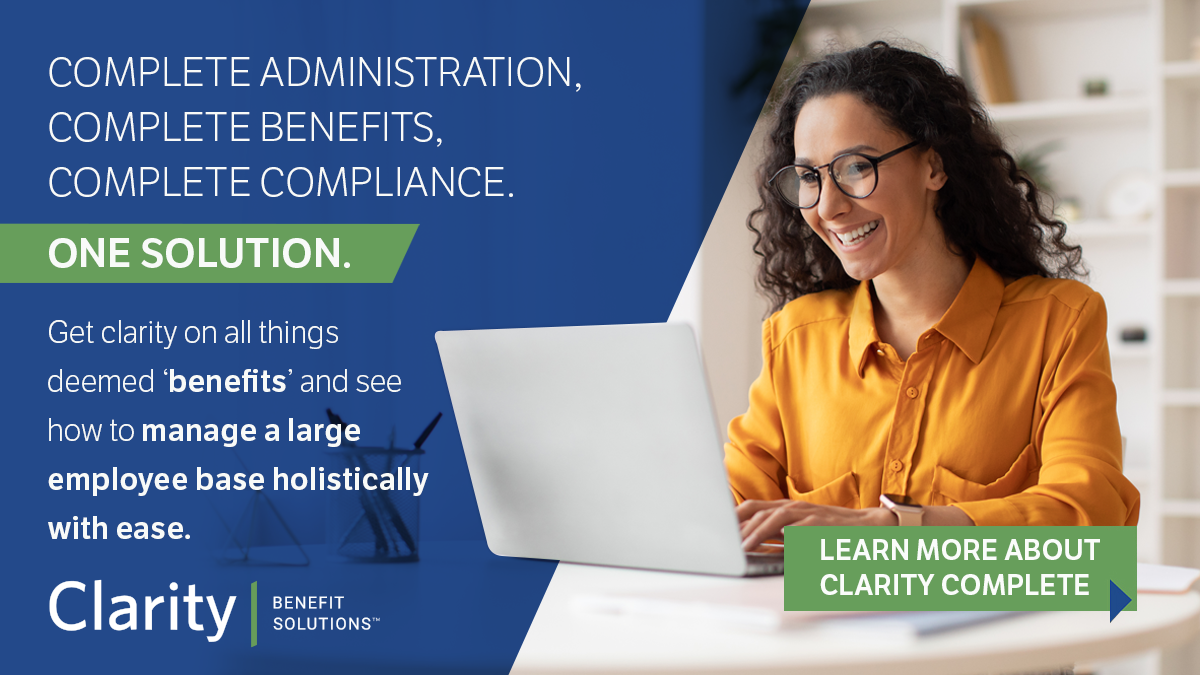
As Mental Health Awareness month is underway, our goal is to help both brokers and employers create benefits packages that support employee mental health while creating a more positive workplace.
May is a great time for brokers to talk to their clients about mental health packages, whether it be to help them create one or make their existing one more impactful. With the following tips in mind, brokers can assist employers in creating a benefits plan that supports mental health as much as it does physical health.
Consider Employee Assistance Programs
Employee Assistance Programs (EAPs) are a great way to address a variety of mental health needs in the workplace since they offer a wide range of services. EAPs can assist employees with things like arranging childcare and negotiating medical bills on top of dedicated mental health benefits. For example, the EAP Health Advocate offers counseling (in person, via video and by phone) held by Licensed Professional Counselors as well as referrals for long-term and specialized care.
Offer discounts on mental health apps
The COVID-19 pandemic solidified the need for accessible mental health care that doesn’t rely on in-person visits. Many apps like Talkspace, BetterHelp and Headspace have gained popularity because they allow people to access counselors from home. They are especially appealing to Millennials and Gen Z, since counseling sessions can often take place via chat or video from their smart device.
Most of these apps utilize subscriptions and require a monthly fee, which can discourage people who do not have flexibility within their budget. However, employers can reimburse or subsidize part of the fee to make it more accessible to all.
Reduce stress with dependent care
As of 2020, about 40% of the United States adult population are parents, and 29% are caregivers for ill or disabled family members -- and some are both. Caregivers face a tremendous amount of financial and emotional stress which can take a toll on wellbeing.
Providing benefits like a Dependent Care Account may not seem like a direct mental health effort, but it can make a big impact. It takes financial burden off caregivers which reduces stress and improves mental health. It also allows caregivers to focus on their work and be more productive without having to worry about their dependents’ care, which helps them better “unplug” at the end of the day.
Revisit your telehealth options
Telehealth became a popular option for people looking for routine care during the COVID-19 pandemic. Your clients are now likely seeing its value and looking for ways to get more people engaged with it. Now’s a great opportunity to make sure mental health professionals and psychiatrists are included in their telehealth offerings, or help them expand their offering to include them. People may be more comfortable seeking mental health help from the privacy of their own home, making telehealth a great option.
Create a more positive company culture
Company culture can have a tremendous impact on employee mental health, so it’s important to have a conversation with your clients about their current culture and areas for improvement. This will look different for every organization depending on size, industry and location, but here are some ideas for improving company culture:
- Create a Zen room or dedicated private space in the office for people to meditate, relax, and disconnect from work for a little while.
- Allow part-time remote work (if there has been a return to office post-COVID) to allow people to have more time in the day to tend to priorities outside of work.
- Dedicate one day a week as a company-wide “no meeting day” to let people focus on and engage with their work better, leading to improved productivity and fulfillment.
- Give a mental health day to employees. Some companies like LinkedIn are giving employees a paid week off to combat the stress of the COVID-19 pandemic.
Mental Health Awareness month is the perfect time to have a deep conversation with your clients about their current mental health package and how they can improve their benefits solutions. Whether they plan on making minor changes or completely overhauling their offerings, any changes can be impactful for improving workplace mental health.
Sources:
https://news.gallup.com/poll/249098/americans-stress-worry-anger-intensified-2018.aspx
https://www.benefitnews.com/list/employee-benefits-that-boosted-mental-health-this-year
https://www.cnn.com/2021/04/02/success/linkedin-paid-week-off/index.html
